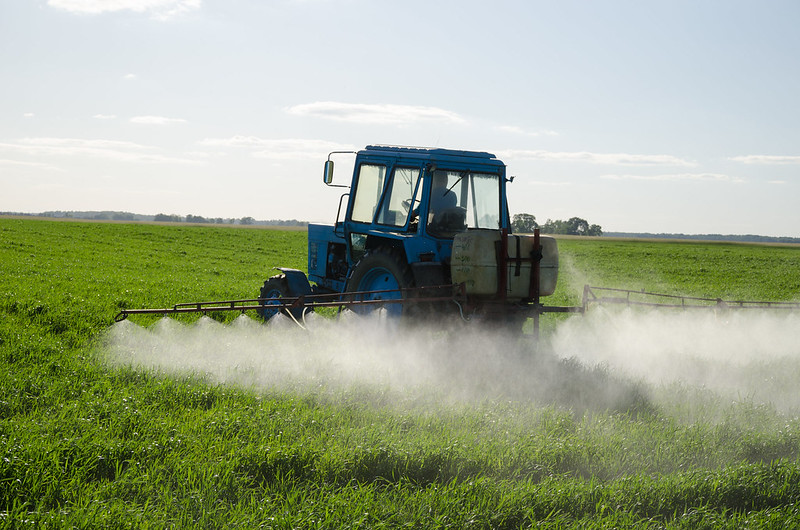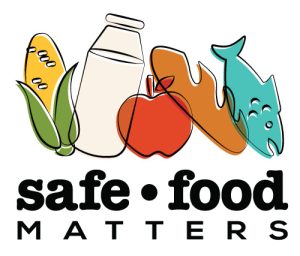A Message of Hope, Light and Love
At this time of reflection and resolution, we offer you a message of Hope, Light and Love. We believe this trinity is quite powerful.
Powerful in the spiritual sense, as in “Hope springs eternal” “Light vanquishes darkness” “… and the greatest of these is Love”.
Also powerful strategically, when viewed in a certain way. Here is our thinking:
Consider Hope as goal-setting. A hope for world peace implies a goal “for something” .
Consider Light as the plan or the truth. It sets out the path for how to best get to the goal.
Consider Love as the power that fuels …Read More
EU Renews Glyphosate – Kind of
The European Commission has officially renewed the registration of glyphosate at the European level. But it’s left much of the actual decision making to individual member states.
Desiccation is outlawed, and use within 60 days of harvest is not allowed on agricultural crops. (Safe Food Matters has been in court with Health Canada over this issue for years.)
Risks and assessments left to individual states include:
the coformulants (other ingredients) contained in GLY products
exposure of consumers from foods grown in fields where GLY was sprayed the year prior
protection of groundwater and surface water
risks to small animals
indirect effects on …Read More
Europe to Ban Pre-Harvest Glyphosate on Crops – so should Canada
On November 16, 2023 the European Commission announced it is set to renew glyphosate in Europe for another 10 years, but will ban desiccation – where spraying occurs to kill the crop for easier harvest. Spraying before harvest to kill weeds will also not be allowed for 60 days prior to harvest on farmed crops (1).
Kids, Candy, and Scary Stuff
Some of the fun things about Hallowe’en are the kids, the costumes, and the candy. We have some scary news about the candy.
Health Canada wants to up the levels of pesticides allowed in sugar. Big time. It has proposed to increase allowable levels of two pesticides used on sugar beets – by 200 fold and 10 fold:
Azoxystrobin (AZ) – from 0.5 to 5 ppm (10x)
Fludioxonil (FL) – from 0.02 to 4 ppm (200x)
Why? So Canada’s levels will match the US levels.
You may recall in 2021 there was a “pause” put on maximum residue limits (MRLs) because of proposed …Read More
“Highly Uncertain” Science Used for Pesticide Limits
Pesticide limits for sugar beet roots – the first up for MRL increases after the “pause” – are based on uncertain science
Confidential test data reveals there is “High uncertainty of [the] MRL estimate” for two increases of pesticide maximum residue limits (MRLs) on sugar beet roots (used for sugar products), which were requested by Syngenta and proposed by Health Canada. The proposed MRLs, which are 200 times and 10 times higher than current levels, were calculated using the OECD Calculator. The output page of the calculator flags in red that there is high uncertainty because small data sets were used.
Health …Read More
Preliminary Hearing on Oct 24 2023 over Glyphosate Product Renewal
On October 24, 2023, Safe Food Matters is n Federal Court with other groups in the first step of its “product renewal case” over a glyphosate product. We are seeking documents to show what science, if any, PMRA looked at in its renewal.
Update 2 on Increasing MRLs: Comments due Sept 8 2023 and MRL Issues Summary
Health Canada has extended the comment period for proposed regulations on MRLs until September 8, 2023. On June 20, 2023 it announced it was seeking comments on its Notice of Intent NOI2023-01 for new regulations on pesticide maximum residue limits (MRLs).
The new MRL regulations require publication of a notice when there is a proposed increase. That is all. No substantive changes are being made to the MRL process.
The comment period for the NOI was extended from August 19 until September 8, 2023.
See our previous post on the NOI and suggestions for comments.
Below is an executive summary/ explanation of the MRL issues.
Context: …Read More
Update: PMRA Transformation Agenda, Increasing MRLs and Action
“Tractor Fertilize Field Pesticide And Insecticide” by aqua.mech is licensed under CC BY 2.0.
Update: PMRA Transformation Agenda, Increasing MRLs and Action
Resignations, Increasing MRLs, and Weak Proposals
Remember two years ago? It was election time. Health Canada proposed higher levels of Roundup in food at the request of Bayer/Monsanto, the public screamed foul-play, and the government paused the proposal.
A “transformation agenda” was kicked off to fix the Pest Management Regulatory Agency (PMRA), a new team was brought in, and a Science Advisory Committee was established to provide advice to PMRA.
So here we are, two years later, $42 million later, thousands of hours of consulting on …Read More
Key Scientist Resigns from PMRA’s Scientific Advisory Committee
“Bruce Lanphear” by SFU – Communications & Marketing is licensed under CC BY 2.0.
Dr. Bruce P. Lanphear, MD, MPH, has resigned from the PMRA’s newly created Scientific Advisory Committee (the SAC).
The SAC was created by Health Canada’s Pest Management Regulatory Agency (PMRA) in 2022 as part of its Transformation Agenda, and was touted recently as acting in an “advisory role” to PMRA.
A link to Dr. Lanphear’s resignation letter is below.
Some key points he makes include:
Restrictive Scope
– The terms of reference were inadequate, and too restrictive – more restrictive than those of the Pest Management Advisory Council, which improperly allows industry representatives.
– He worries …Read More
Reversal of CFIA decision on gene edited seed is needed!
Reversal of CFIA decision on gene edited seed is needed!
This article was originally published by the National Farmers Union – May 13, 2023
On May 3, 2023 Agriculture Minister Bibeau approved the Canadian Food Inspection Agency (CFIA) regulatory guidance on gene-edited genetically engineered (genetically modified or GM) plants and seed, making many of these products exempt from regulation. Instead, it lets private companies decide if their own products are safe for the environment — and put them on the market without revealing they are gene-edited.
Agriculture and Agri-Food Minister should reverse the decision reversed, and mandatory, independent safety assessments and mandatory reporting …Read More





